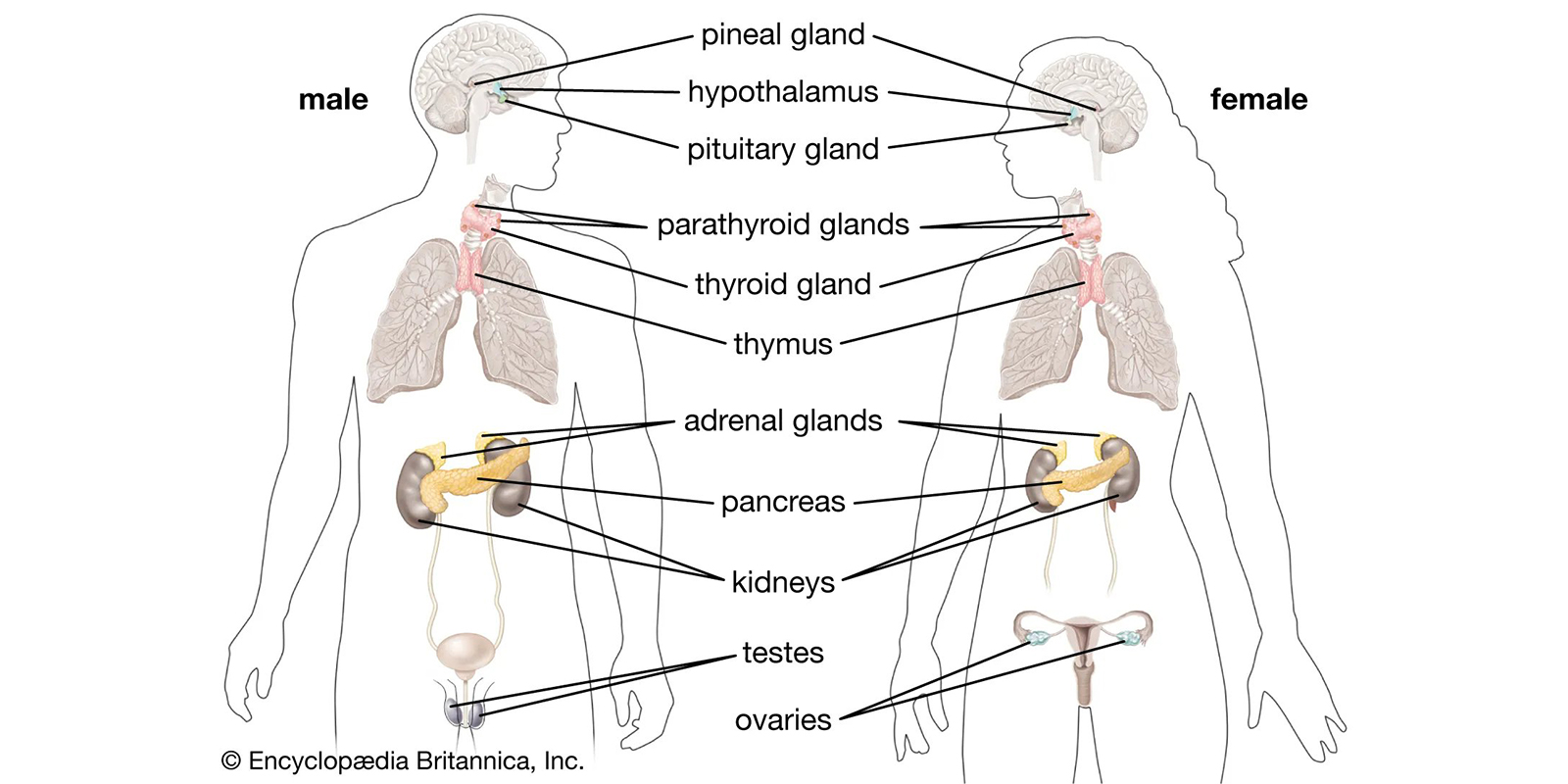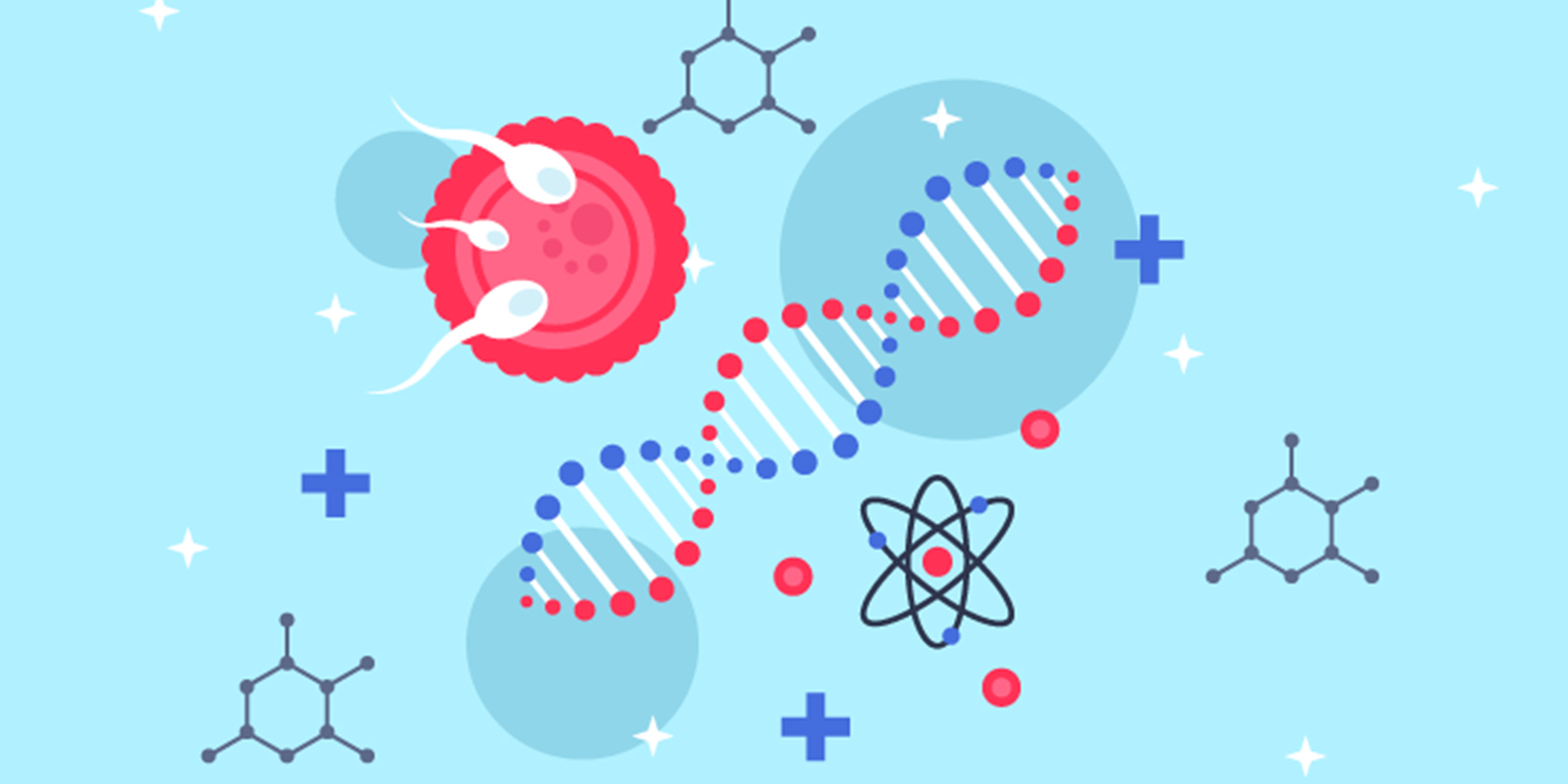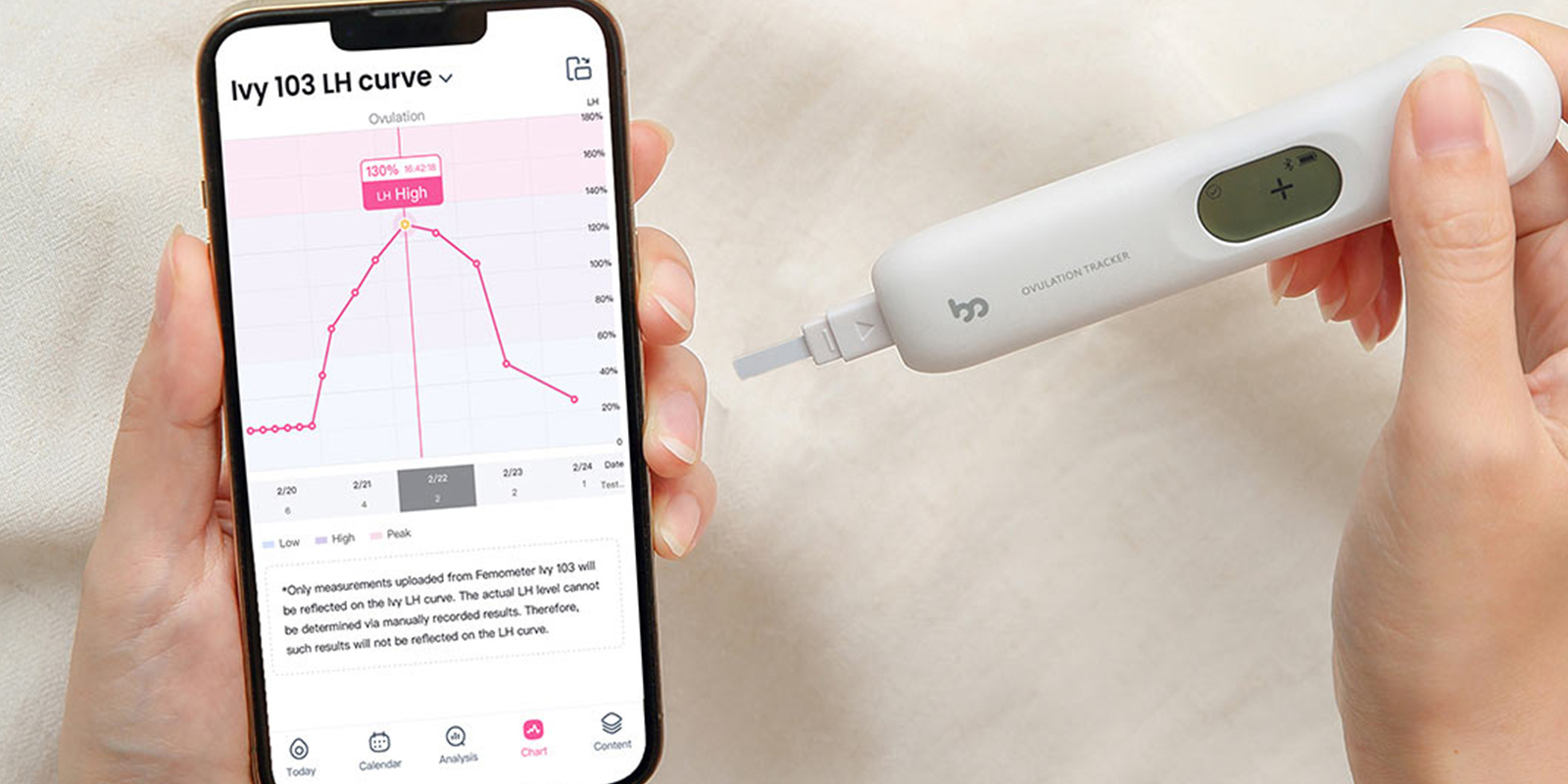What are Hormones and the Endocrine System?
The endocrine system is a complex network of glands and organs. Hormones are chemicals used in the endocrine system to control the body's metabolism and to coordinate the body's energy balance. Hormones and the endocrine system are essential for the development, metabolism, and growth of our body. More than 50 kinds of hormones have been identified in the human body til now. Hormone levels are affected by physiological factors such as age, growth, illness, and psychological factors such as stress and mood disorders.
Importance of Hormones
Hormones are produced in the body's various endocrine glands and released into your bloodstream, sending messages to the organs, which act according to increased or decreased hormone levels. The aim is to co-ordinate the body's functions. Imbalance hormone levels, even tiny changes can have serious effects on the entire body.
Hormones are as powerful as to affect everything from blood sugar to blood pressure, growth and fertility, sex drive, metabolism, and even sleep. Their influence goes as far as changing the way we think and act day to day.
According to the EPA, hormones control or regulate many biological processes by producing low energy. Like locks and keys, many hormones work by binding to receptors produced within the cell. When binding, the receptor carries out the hormone's instructions by altering the cell's existing proteins or turning on the genes that build new proteins. Hormone receptor complexes switch on or off specific biological processes in cells, tissues, and organs.

For example, insulin levels control the rise or fall of blood sugar; testosterone and oestradiol control the differentiation and growth of the reproductive organs and ensure their functions, and growth hormone and thyroid hormone guard the body's growth and energy production.
Where are Endocrine Glands Located in the Human Body?
A gland is an organ that produces and releases hormones that play specific roles in the body. Endocrine and exocrine glands release the substances they produce into your bloodstream. Numbers of glands build the endocrine system. The hypothalamus, pituitary gland, and pineal gland are located in your brain.
 image source: https://www.britannica.com/science/endocrine-system
image source: https://www.britannica.com/science/endocrine-system
Endocrine Glands:
Hypothalamus - The hypothalamus connects our endocrine system to our nervous system, driving the endocrine system.
Pituitary Gland - The pituitary gland receives signals from the hypothalamus. The gland has 2 lobes, the posterior and anterior lobes. The posterior lobe secretes hormones produced by the hypothalamus. The anterior lobe produces hormones on its own, some of which act on other endocrine glands.
Thyroid Gland - The thyroid gland is essential for healthy development and maturation in vertebrates and regulates metabolism.
Adrenal Glands - The adrenal glands can be divided into 2 glands: the cortex and the medulla. These glands produce hormones in response to stress and regulate blood pressure, glucose metabolism, and salt and water balance in the body.

Pancreas - The pancreas is responsible for producing glucagon and insulin. Both hormones help regulate the concentration of glucose (sugar) in the blood.
Gonads - The male reproductive gonads (or testes) and female reproductive gonads (or ovaries) produce steroids that affect growth and development and regulate the reproductive cycle. The main categories of gonadal steroids are androgens, estrogens, and progestins, all of which are found in men and women but in different amounts.
Parathyroid glands - These are a group of 4 small glands behind the thyroid gland. They play a role in bone health by controlling calcium and phosphorus levels.
Thymus gland. This gland produces white blood cells called T-lymphocytes, which fight infection and are essential for the development of a child's immune system. The thymus gland begins to shrink after puberty.
6 Important Hormones and Their Roles in Your Body
- T3 and T4
T3 and T4 are the 2 main thyroid hormones for regulating metabolism, which means they play a vital role in digestion, hunger, and overall energy levels. Your thyroid may produce too much of the hormone, called hyperthyroidism, or too little, called hypothyroidism. Hypothyroidism is much more common.
- Melatonin
Melatonin is one of the hormones that help control your sleep/wake cycle or circadian rhythm. Sunshine blocks the production of melatonin in the pineal gland. So when nighttime comes, more melatonin will be produced to make you fall asleep.
Not only the sunshine, but the light from your computer, mobile phone, and TV can all reduce the amount of melatonin produced, so using anti-blue light glasses at night or avoiding using smartphones and computers from 1-2 hours before bedtime can make you sleep better.
- LH hormone and testosterone
These 2 hormones are sometimes referred to as the female and male hormones because the luteinizing hormone is produced mainly in the ovaries and testosterone is produced mainly in the testes. Both of them are involved in reproduction.

4. Cortisol
Cortisol is a steroid hormone produced by the 2 adrenal glands located at the top of each kidney. When you are stressed, more cortisol is released into the bloodstream. A proper balance of cortisol is essential for your overall health. Both short-term and long-term stress can trigger a cortisol level higher and result in insomnia.
- Insulin
Insulin is a crucial hormone responsible for regulating blood sugar levels in the body by aiding cells in the digestion and utilization of glucose. Individuals with type 1 or type 2 diabetes either have insufficient or ineffective insulin production, leading to elevated blood glucose levels. As a result, they must be mindful of their diet, avoid high-sugar foods, and carefully manage their insulin levels through pills to control and maintain healthy blood sugar levels.
- Oestrogen
Oestrogen is one of the main female sex hormones and can be found in combined oral contraceptives and some menopause treatment medications. It is needed for puberty, the menstrual cycle, pregnancy, bone strength, and other body functions. Estrogen levels vary throughout the menstrual cycle and decline after menopause. Insufficient estrogen can lead to osteoporosis, which makes your bones porous and more fragile, while too much estrogen increases the risk of blood clots and stroke.
What does LH Hormone Do?
Luteinizing hormone (LH hormone) is a glycoprotein hormone secreted by gonadotropin cells in the pituitary gland in conjunction with follicle-stimulating hormone. LH hormone is part of a neural pathway comprising the hypothalamus, pituitary, and gonads. In this pathway, LH release is stimulated by gonadotropin-releasing hormone (GnRH) and inhibited by oestrogen in women and testosterone in men. LH has multiple functions that differ between men and women but contributes to the maturation of primordial germ cell matter in men or women.
LH triggers the production of steroid hormones in women’s ovaries, helping to regulate the length and sequence of a woman's menstrual cycle by playing a role in ovulation and egg implantation in the uterus.
Development of Luteinizing Hormone
According to an article published by MountSinai, levels of luteinizing hormone in adult women vary in stages, with normal levels ranging from roughly:
- Premenopausal: 5 to 25 IU/L
- Increased levels after menopause: 14.2 to 52.3 IU/L
- Luteinizing hormone levels peak during the menstrual cycle and maybe even higher.
- LH levels are usually low in childhood.
- Normal values for men over 18 years of age range from about 1.8 to
8.6 IU/L.

Specific Development of LH Hormone
- Fetal stage
In the male fetus, in contrast to the hcgs levels changes, LH secretion increases by the 10th week of gestation, peaks by the 20th week, and then gradually decreases. In early fetal development, HCG is secreted more than LH and therefore dominates testosterone production by Leydig cells, then switches to LH-driven around the 15th-20th week of gestation as LH levels increase.
In the female foetus, peak levels of LH are higher than in the male foetus, which is medically attributed to negative feedback on the hypothalamic-pituitary-gonadal axis from the higher testosterone levels in the male foetus. Female fetuses have lower gonadal hormone levels during gestation because the development of the female reproductive tract is not dependent on circulating levels of LH or hCG. The developing ovary does not even express luteinizing hormone/chorionic gonadotropin receptors until the 16th week of gestation, so steroidogenesis in the ovary does not reach its lowest levels until after the foetus is delivered.
- After Delivery
After delivery, regardless of sex, a sharp increase in LH hormone levels can be seen because of the withdrawal of estrogen from the mother. After this temporary increase in LH levels, they begin to decline and stay at low basal levels until prepuberty starts.
- Puberty
In both men and women, in the years before puberty, there is a slow increase in the secretion of LH hormone nocturnally. As puberty progresses, LH begins to be secreted less so in a nocturnal pattern followed by a pulsatile pattern throughout the whole day. This increase in gonadotropin secretion helps to stimulate gonadal steroidogenesis important to undergo maturation.
Conclusion
The human body is an amazing structure, the brain accounts for only 2% of body weight but consumes 20% of the body's oxygen consumption, it has the most complex neural network; endocrine glands are distributed in all parts of our body, controlling the function of the body's various organs through the release of hormones into the bloodstream. While the brain is crucial for thought, the body's growth and development rely on the hormone and endocrine system, the balance of hormones is essential to overall health. In particular, the role of luteinizing hormone in adult women is pivotal. Imbalances in LH hormone levels can have adverse effects on women’s health. LH hormone levels can be monitored through at-home testing strips for detecting any abnormalities early on, leading to timely medical intervention.
This article is the original creation of Femometer. All rights reserved by Femometer Inc. To reproduce, distribute, or reference the content, please reach out to us in advance to prevent any potential legal issues. Copyright © Femometer Inc.









